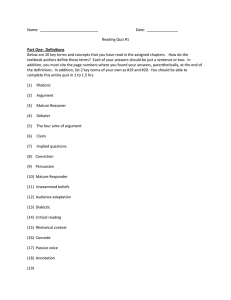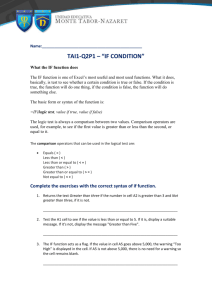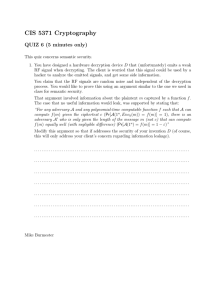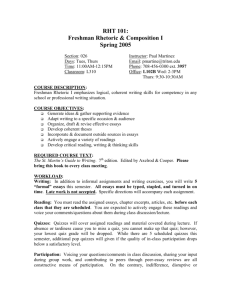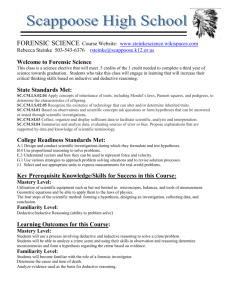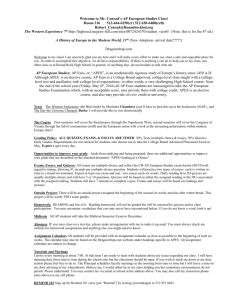Andrea Williams -- Daily Critical-Thinking plus Quiz
advertisement
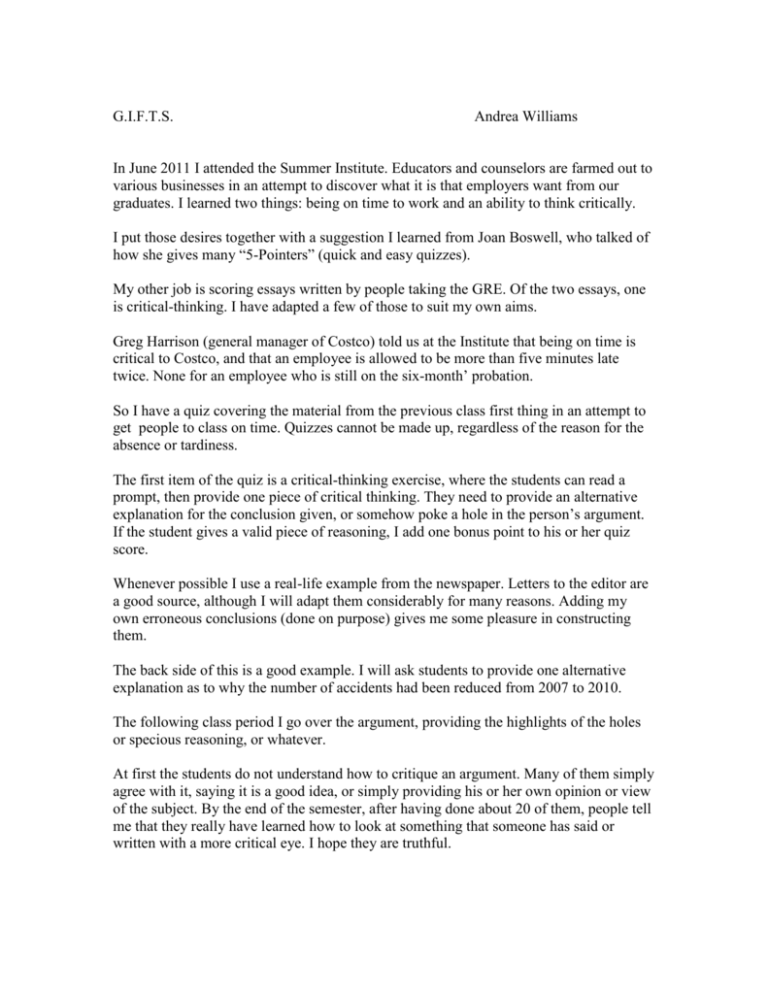
G.I.F.T.S. Andrea Williams In June 2011 I attended the Summer Institute. Educators and counselors are farmed out to various businesses in an attempt to discover what it is that employers want from our graduates. I learned two things: being on time to work and an ability to think critically. I put those desires together with a suggestion I learned from Joan Boswell, who talked of how she gives many “5-Pointers” (quick and easy quizzes). My other job is scoring essays written by people taking the GRE. Of the two essays, one is critical-thinking. I have adapted a few of those to suit my own aims. Greg Harrison (general manager of Costco) told us at the Institute that being on time is critical to Costco, and that an employee is allowed to be more than five minutes late twice. None for an employee who is still on the six-month’ probation. So I have a quiz covering the material from the previous class first thing in an attempt to get people to class on time. Quizzes cannot be made up, regardless of the reason for the absence or tardiness. The first item of the quiz is a critical-thinking exercise, where the students can read a prompt, then provide one piece of critical thinking. They need to provide an alternative explanation for the conclusion given, or somehow poke a hole in the person’s argument. If the student gives a valid piece of reasoning, I add one bonus point to his or her quiz score. Whenever possible I use a real-life example from the newspaper. Letters to the editor are a good source, although I will adapt them considerably for many reasons. Adding my own erroneous conclusions (done on purpose) gives me some pleasure in constructing them. The back side of this is a good example. I will ask students to provide one alternative explanation as to why the number of accidents had been reduced from 2007 to 2010. The following class period I go over the argument, providing the highlights of the holes or specious reasoning, or whatever. At first the students do not understand how to critique an argument. Many of them simply agree with it, saying it is a good idea, or simply providing his or her own opinion or view of the subject. By the end of the semester, after having done about 20 of them, people tell me that they really have learned how to look at something that someone has said or written with a more critical eye. I hope they are truthful.
